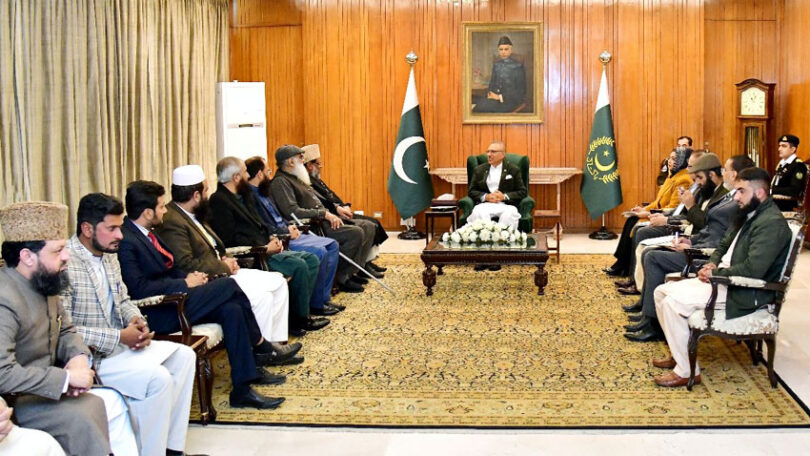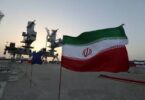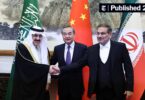President Dr. Arif Alvi called upon the Ulema and Mashaikh of the country to play their role in bringing positive social change, and discouraging extremism, terrorism, and sectarianism in the society. During a meeting with a delegation of the Ulema and Mashaikh, the President urged the religious scholars for an active role in inculcating ethical and moral values in society, promoting the conservation of resources, national solidarity, religious tolerance, and inter-faith harmony and peace in the country.
Presently, the state of Pakistan faces an ever-widening internal disunity, religious extremism, and resurgent terrorism, coupled with persistent political disagreement, that poses the worst challenge to national unity and territorial integrity of the country. Over the years, the giant of extremism and a sense of piousness and superiority had spread across society while religious clerics had been distributing certificates of disloyalty and infidelity over a mere disagreement and personal bias without any remorse, fear of censure, and accountability, thus lawlessness and hate prevail everywhere and a new racket of violence and religious abuse occur another day.
Pakistan is a Muslim nation with less than four percent religious minorities including Hindus, Christians, Sikhs, Ahmadis, Parsis, and others. Unfortunately, there had been a sense of insecurity, suspicion, and doubt among different sects of Muslims and about minorities in the country. Children attract those sentiments at home and gradually develop such beliefs at Schools and religious seminaries which finally culminates in the shape of ethnic and religious radicalization, sectarianism, and hate against other sects, religions, and nationalities at the community level. Due to reason, our society witnesses acts of intolerance and harassment, mob lynching, violent protests, and demonstrations as well as political violence and online intimidation in the public on regular basis. Unfortunately, our media and civil society had been vigorously sensitizing successive governments about the seriousness of the issues undermining national unity and religious harmony in the country but the government and political leadership failed to address such grave problems despite achieving a nationwide consensus in the aftermath of the APS massacre about 8 years ago.
Islam is a religion of peace and tranquility and had always taught respect for all religions and reverence for all prophets, divine books, and their followers. While the constitution and the state of Pakistan guaranteed equal rights for all its citizens irrespective of their religion, caste, and creed. Unfortunately, certain political parties, leaders, and religious clerics had used ethnic bias, and sectarian and religious bigotry for boosting their politics and consolidating their grip over their tribes, henchmen, and political group. Realistically, the 19-point National Action Plan (NAP) categorically encompasses all measures to address the menace of extremism, hate speech, and terrorism but our leaders left that magnificent documents unimplemented and the problem not only persist rather became worst over the past years.
In fact, multiple inter-faith dialogues had been conducted and numerous inter-parties committees were constituted in the past, however, the giant of religious intolerance and extremism could be dealt with effectively so far. Apparently, sagacious tips and gracious appeals are less likely to produce desired results thus the government must initiate strict application of relevant laws and service of impartial justice to bring the perpetrators to their ultimate conclusion. So, this cancer could be treated once and for all.







